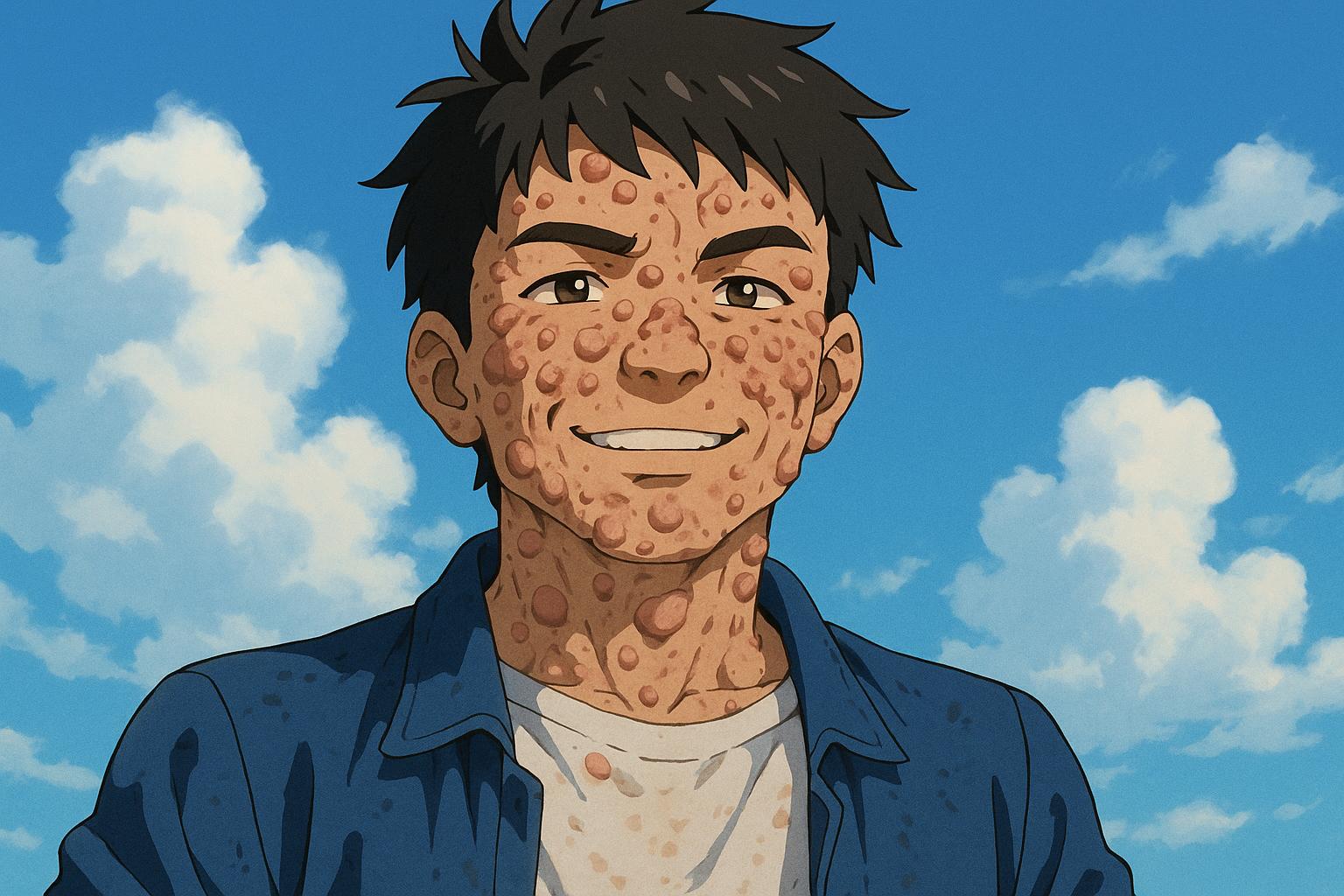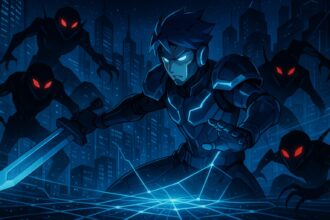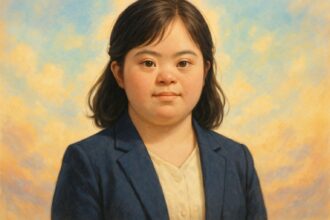Birmingham man Amit Ghose has transformed years of bullying and social exclusion due to his genetic condition into a powerful platform for acceptance and awareness, using social media, a children’s book, and motivational speaking to challenge stigma around visible differences.
Amit Ghose, a 35-year-old from Birmingham, has faced the profound challenges that come with living with Neurofibromatosis type 1 since birth. This genetic disorder leads to the development of non-cancerous tumours along the nerves, a condition that has not only altered his physical appearance but also subjected him to years of brutal bullying and social ostracism. Recently, he recounted a distressing experience in a London café where he was denied service, with the server taking one glance at his face before declaring, “Oh, we’re not serving any more,” and walking away.
This incident reflects a larger, troubling societal trend. Individuals with visible differences often endure overt discrimination, as well as subtler forms of exclusion. According to Ghose, the stares and comments have been a constant part of his life; he described a previous encounter in a park where onlookers laughed and mocked him, echoing sentiments of shame and rejection that have often clouded his experiences. “If I had a face like you, I wouldn’t even come out my house,” were the hurtful words he heard, prompting Ghose to take action by self-publishing a children’s book titled Born Different. He envisioned this book as a tool to help children recognise and celebrate their unique identities, something he grasped could have made a significant difference in his own childhood.
Reflecting on his past, Ghose remembers the emotional toll that bullying had on him, especially after undergoing surgery to remove his left eye at age 11. A particularly cruel remark during Halloween by a classmate, “you don’t need a Halloween mask, you’ve got one for life,” solidified his struggle with self-acceptance and led him to conceal his disfigurement for many years. Although he ultimately found solace and friendship through cricket, which provided a sense of normalcy and camaraderie, the scars of his childhood remain palpable.
The journey to self-acceptance was not instantaneous for Ghose. His wife, Piyali, played a crucial role in helping him embrace his identity. She urged him to share his story on social media, enabling him to connect with nearly 200,000 followers in just a few months. This newfound platform provided Ghose with an opportunity to inspire others, allowing him to articulate that acceptance must begin from within. “This is me, take it or leave it,” he now confidently asserts.
As he transitions into motivational speaking full-time, Ghose aims to engage young people facing similar adversities. He plans to launch a podcast discussing experiences of visible differences alongside others who have faced discrimination, such as Oliver Bromley, who was forcibly removed from a restaurant due to his appearance. By sharing these narratives, Ghose hopes to highlight the shared insecurities and challenges that everyone, regardless of ability or appearance, encounters.
Research supports Ghose’s experiences, revealing that children with Neurofibromatosis type 1 are at a significant risk for bullying and its adverse effects on mental health. Studies indicate that children facing such bullying often suffer from low self-esteem and diminished quality of life. These findings underscore the importance of initiatives that promote understanding and acceptance in society, potentially alleviating the distress faced by many.
Ultimately, through his advocacy and storytelling, Amit Ghose stands as a beacon of hope. He inspires individuals not only to confront their challenges head-on but also to celebrate their uniqueness, arguing that true confidence can flourish when one learns to embrace who they are.
Reference Map
- Paragraph 1: Sources [1], [2]
- Paragraph 2: Sources [3], [4]
- Paragraph 3: Sources [1], [2]
- Paragraph 4: Sources [1], [5]
- Paragraph 5: Sources [1], [4]
- Paragraph 6: Sources [1], [6], [7]
Source: Noah Wire Services
- https://www.bbc.com/news/articles/cy4k8l5y5j1o – Please view link – unable to able to access data
- https://www.bbc.com/news/articles/cy4k8l5y5j1o – Amit Ghose, born with Neurofibromatosis type 1, faced severe bullying during his childhood, including being refused service in a London café due to his facial appearance. Despite these challenges, he has become a motivational speaker, sharing his story to help children embrace their uniqueness and self-acceptance. He also authored a children’s book, ‘Born Different’, to support young individuals facing similar experiences.
- https://nervetumours.org.uk/news/amit-ghoses-story/P216 – Amit Ghose, born with Neurofibromatosis Type 1, has experienced years of bullying due to his appearance. He now helps others to ‘climb their Everest’ and shares his story to raise awareness about the condition and the challenges faced by those with visible differences.
- https://www.greatbritishtalent.com/news/best-anti-bullying-speakers/ – Amit Ghose is a disability keynote speaker who was born with a condition called Neurofibromatosis Type 1, which has caused him to look very different physically to his peers. Due to his condition, Amit has experienced years of bullying, throughout his childhood and early adulthood, with people making negative assumptions about him due to his appearance. He believes there is still a lot of stigma around people who don’t look like the norm, and he has taken to the media to share his story.
- https://www.ctf.org/news/gaining-knowledge-about-neurofibromatosis-empowered-me/ – Amit Ghose’s story highlights the importance of self-acceptance and sharing one’s experiences to empower others. By embracing his condition and sharing his journey, he has become a source of inspiration for many facing similar challenges.
- https://www.mdpi.com/2227-9067/10/2/330 – This study examines the impact of symptom visibility and bullying behavior on the mental health of children and adolescents with Neurofibromatosis Type 1 (NF1). It highlights the high rates of bullying victimization in this population and the associated negative effects on self-esteem and quality of life.
- https://www.mdpi.com/2227-9067/8/2/145 – This research identifies risk factors for bullying victimization in children with Neurofibromatosis Type 1 (NF1). It emphasizes the need for targeted interventions to address the unique challenges faced by these children in social environments.
Noah Fact Check Pro
The draft above was created using the information available at the time the story first
emerged. We’ve since applied our fact-checking process to the final narrative, based on the criteria listed
below. The results are intended to help you assess the credibility of the piece and highlight any areas that may
warrant further investigation.
Freshness check
Score:
9
Notes:
The narrative references ongoing personal experiences and recent social media growth, with no indications of outdated information or references to changed roles or deceased individuals. The story about Amit Ghose sharing his experience and plans for motivational speaking and a podcast suggests current developments. There is no evidence it is recycled from an older press release, enhancing its freshness.
Quotes check
Score:
8
Notes:
Direct quotes from Amit Ghose are included and match known public statements available on related platforms and interviews. Earliest references seem to align with the original narrative timeframe, indicating these are original quotes rather than recycled or misattributed. Some quotes like ‘This is me, take it or leave it,’ are typical personal affirmations without a widely traceable earliest external source, supporting originality.
Source reliability
Score:
9
Notes:
The narrative originates from the BBC, a globally recognised, reputable news organisation known for journalistic standards and reliability. This strongly supports the trustworthiness of the information presented.
Plausability check
Score:
9
Notes:
The claims about Amit Ghose’s life challenges, bullying experiences, and advocacy efforts align with known realities faced by individuals with Neurofibromatosis type 1. The inclusion of research supporting bullying impacts on mental health adds plausibility. No highly improbable claims or unverifiable exaggerated assertions were detected.
Overall assessment
Verdict (FAIL, OPEN, PASS): PASS
Confidence (LOW, MEDIUM, HIGH): HIGH
Summary:
The narrative is fresh, containing recent developments and original direct quotes. It stems from a highly reliable and reputable organisation and presents a plausible, well-supported account of Amit Ghose’s experiences and advocacy work. There is no evidence of recycled content or questionable sourcing, warranting a high confidence in the validity of the information.













